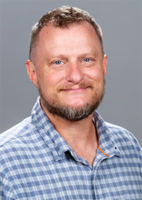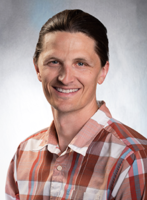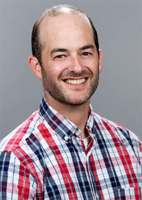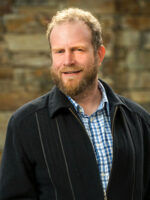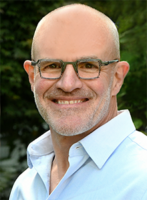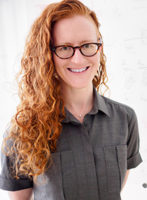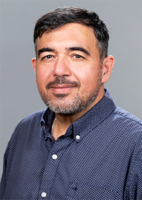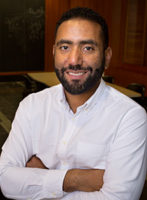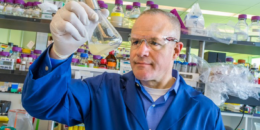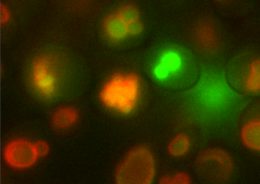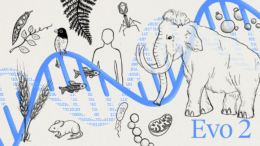Concentration: Computational & Synthetic Biology

Synthetic and computational biologists aim to design and build novel biological functions and systems by applying engineering design principles and computational tools to biology. This includes genome editing, modeling, and analysis of large sets of genomic data.
Real-World Applications
Drug discovery, green manufacturing, agriculture, customized materials, personalized medicine, bioethics.
News About: Computational & Synthetic Biology
Arkin Lab uses the microbiome to combat lung pathogens
Researchers from Adam Arkin’s lab, funded by a grant from the Dept. of Health and Human Services, have engineered colonies of good bacteria that can be inhaled to crowd out pathogenic bacteria and combat lung infections without antibiotics.
Four BioE Faculty Named 2025 Highly Cited Researchers
Professors Paul Adams, Adam Arkin, Patrick Hsu, and Jay Keasling have been recognized in the “2025 Highly Cited Researchers” list, meaning their work ranks in the top 1% of citations for their field and publication year in Clarivate’s Web of Science citation index
Taner Sen and Colleagues Sequence Complex Oat Pangenome
Adjunct Professor Taner Sen and his colleagues at the USDA and beyond have assembled and annotated the genomes of 33 wild and domesticated oat lines, along with an atlas of gene expression across 23 of these lines, which will enable future efforts to produce even more hardy and productive strains of the popular grain.
Keasling Named 2025 DOE/NAI Innovator of the Year
The Department of Energy and the National Academy of Inventors have honored Professor Jay Keasling with their 2025 Innovator of the Year Award, which goes to one DOE employee who has translated research into tangible impacts that have benefited society at large. Keasling is a pioneer in synthetic biology who leads a groundbreaking research program focused on engineering microorganisms to produce advanced biofuels and chemicals.
New Process Uses Microbes to Create Valuable Materials from Urine
A team led by BioE alumnus Yasuo Yoshikuni genetically modified yeast to create hydroxyapatite, a strong and lightweight material, from the elements present in urine. With lower production costs the material may now be practical for use in wastewater treatment, fertilizer manufacturing, building materials and plastic replacement.
Lareau named MTI Innovator
Professor Liana Lareau is recognized for her revolutionary approach to treat retinitis pigmentosa and other dominant genetic diseases by combining CRISPR prime editing with machine learning.
Indigenous knowledge helps biotech find new drugs. This grad student wants those companies to give back.
Bioengineering doctoral student Maria Astolfi and her colleagues argue for a new type of partnership with indigenous peoples to create a more ethical bioeconomy.
The not-so-secret life of gut bacteria
Computational modeling from Mofrad Lab gives us a peek inside these important microbial communities.
Pivot Bio is using microbial nitrogen to make agriculture more sustainable
Co-founded by BioE alumnus Karsten Temme, Pivot is bringing cleaner nitrogen to American farmland.
AI can now model and design the genetic code for all domains of life with Evo 2
Research led by Professor Patrick Hsu has produced Evo 2, the largest AI model in biology to date, which can accurately predict the effects of all types of genetic mutations.


